Dog Cancer Supplements Dr. Dressler Excludes from Full Spectrum Cancer Care…and Why
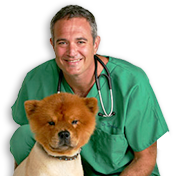
Many Supplements Recommended Online for Dog Cancer Are Either NOT Going to Be Helpful, Are Too Costly, or Are Just Not Safe
by Dr. Demian Dressler, DVM
Excerpted from Appendix B: Excluded Supplements, which can be found starting on page 415 of The Dog Cancer Survival Guide, by Dr. Demian Dressler, DVM with Dr. Susan Ettinger, DVM, Dip. ACVIM (Oncology)
Many dog lovers are willing to try just about anything when their dogs have cancer, and there are many supplements purported to be good for cancer that I have assessed but decided I could not recommend in general, and certainly not in my book.
One of my major concerns is over-dosing dogs. While supplements are generally not as powerful as pharmaceuticals, you have to keep in mind that they can have effects. (Or why would we even bother using them?)
Using too many at once, especially ones that cancel each other out is usually a bad idea. Think about it: would you trust a doctor who told you that you needed fifteen different prescriptions? Especially if several of them offered opposite benefits? If you are giving your dog more than a handful of carefully chosen supplements that have been shown to be safe and helpful, think twice.
Another cause for concern is duplicating ingredients -- giving more than one supplement that contains the same ingredients. This can lead to you over-dosing your dog, because, just like with pharmaceuticals, you can do "too much of a good thing."
Most of us are not pharmacologists -- not even doctors or veterinarians (although we do get some pharmacology training in medical school). Pharmacologists need four years of preparatory coursework BEFORE they go through four years of pharmacy training. That's eight years of study to become a pharmacist! For reference, medical school is three years, and most veterinary programs are two years.
No wonder those of you trying to learn overnight how all those drugs and supplements and vitamins interact to help (or harm) your dog get frustrated. You can't expect yourself to be able to master all the ins and outs of supplements and drugs overnight, in your kitchen.
That's why it's wise to only add things to your dog's strategy under your veterinarian's supervision (because they have some training in this stuff), and to only add things that have been shown to be both safe and have benefit.
To make the Full Spectrum recommendations I make in The Dog Cancer Survival Guide, I’ve studied, a lot. I've spent a lot of time getting past the hype, the marketing, and the often-passionate online discussions.
I only recommend things that are generally safe and benefit most dogs, so that you don't waste time or money on supplements that have no value. I also want to recommend things that have a "lot of leverage" and can be used safely with conventional treatments, because I want you to be safe.
After all, your dog is already sick with cancer. The last thing you want to do is give him or her something you think is good that ends up being less than safe. And of course, I want you to check everything out with your own veterinarian because every cancer case is different for every dog.
The recommendations I make in my book are for foods and supplements you can manage at home, which have the biggest impact on dogs with cancer, and which are helpful for most dogs and most dog cancers.
Even so, I know you may have heard about supplements that aren’t included in my recommendations.
To keep you informed and let you know more about the way I think, below is a list of some of the major supplements I rejected for inclusion, and a summary of my opinion about why they are simply not as important as other supplements (or are dangerous, in some cases).
The reasons for rejection vary, and may include one or more of the following:
- Some were rejected because they might interfere with more important therapies. As I stated in the sidebar on page 249, the first priority in Full Spectrum care is targeting cancer cells, followed by boosting the immune system. If the immune system could take care of the cancer by itself, it would have when it was strong and healthy -- at this point, we need to FIRST target cancer cells, and SECOND boost the immune system. For example, supplements with strong antioxidant properties may interfere with important pro-oxidant therapies (such as chemotherapy, radiation, Apocaps CX and other apoptogens). That's why, if a supplement with antioxidant benefits does not have an anti-cancer effect, or if it has evidence for interfering with primary therapies that have known benefits, I rejected it.
- Some were rejected because there is unconvincing evidence. The supplement needs more than anecdotal evidence that it helps cancer. If it has only anecdotal evidence, it must have many reported successes. If not, the supplement was rejected.
- Some were rejected because they are not effective when given by mouth. Some supplements are effective when given by injection, but not by mouth. If the supplement cannot be given by mouth and be effective, it was rejected.
- Some were rejected because they aren't absorbed when taken by mouth: "bioavailability issues." If the supplement is not absorbed into the bloodstream, or if the intestines and/or the liver break down the active ingredient before it gets into the bloodstream, the supplement was rejected.
- Some were rejected because they have questionable safety (or are unsafe) in dogs. I will not recommend a supplement unless my extensive research has demonstrated its safety. If a supplement did not have a healthy margin of safety based on known data, I rejected it.
- Some were rejected because of batch variability problems. The supplement must have a uniform amount of active ingredient in each batch. Some supplements are cut with fillers, or may not have uniform amounts of the active ingredient in each batch or pill due to seasonal or regional differences. Depending upon many factors, this variability could reduce efficacy or even create a danger to the dog. Such supplements were rejected.
- Some were rejected because they are really unsafe when used with commonplace treatments most dogs get. Some supplements can cause more serious problems when combined with other medications or treatments. These were excluded.
- Some were rejected because they have impractical dosing requirements. If a supplement requires a mega-dose to be effective, most guardians will not be able to get their dogs to take the required amount by mouth.These were excluded.
- Some were rejected because they are priced unreasonably high. Every supplement has a price tag, but some supplements are priced so unreasonably high that they were excluded.
- Some were rejected because I could not find research available in or translated to English. Many supplements from Traditional Chinese Medicine, Ayurvedic Medicine, and aboriginal medicine systems were excluded because original research and medical textbooks are written in languages I cannot read. Because I can’t accurately assess their evidence, I did not include them in Full Spectrum care. My hope is that with accelerating global communications I’ll learn more in the future. It's not that I don't think these treatments could help your dog -- it's just that I don't personally know enough to recommend them. If you are interested in using these medicines, I highly recommend consulting directly with practitioners from those systems so you can get their expert advice.
The following list is not comprehensive; it contains the most popular supplements I rejected. As always, I reserve the right to change my mind and my recommendations as new data emerges.
For a detailed description of the nutraceuticals I would recommend instead, get the free chapter and appendix of my book here.

VERDICT on Acai:
Not recommended; may not be safe for dogs.
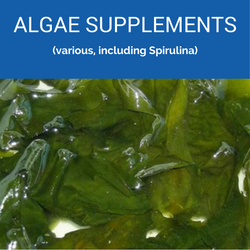
VERDICT on Algae Supplements:
Low priority supplement; impractical doses.
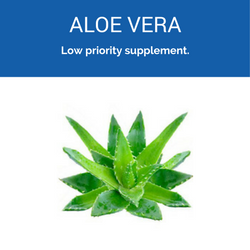
VERDICT on Aloe Vera:
Low priority supplement; antioxidant that may interfere with more important therapeutics; bioavailability issues.
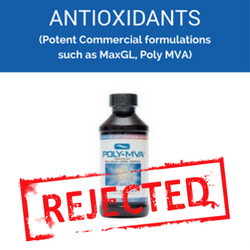
VERDICT on Potent Antioxidants:
Antioxidants may interfere with more important therapeutics; cost-prohibitive.
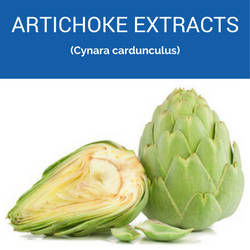
VERDICT on Artichoke Extracts:
Impractical doses; also redundant as a supplement if taking Apocaps CX.
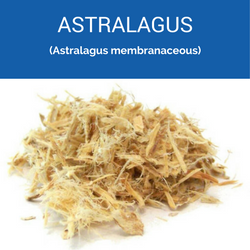
VERDICT on Astralagus:
Low-priority supplement.
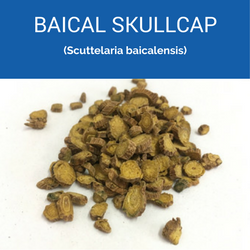
VERDICT on Baical Skullcap:
May recommend in the future.
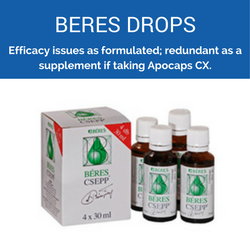
VERDICT on Beres Drops:
Efficacy issues as formulated; redundant as a supplement if taking Apocaps CX.
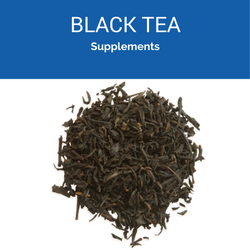
Black Tea Supplements
VERDICT on Black Tea Supplements:
Please see my comments about EGCG and green tea supplements.
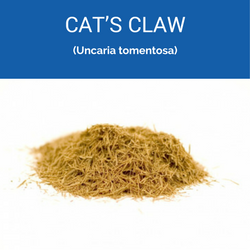
VERDICT on Cat's Claw
Low priority supplement; batch variability; antioxidant that may interfere with more important therapeutics.
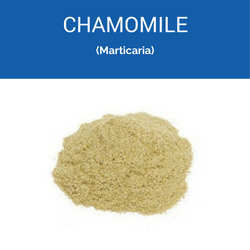
VERDICT on Chamomile
Redundant as a supplement if taking Apocaps CX; impractical doses on its own.
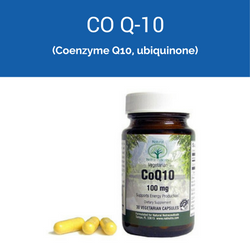
VERDICT on CO Q-10
Low priority supplement; antioxidant that may interfere with more important therapeutics; bioavailability issues.
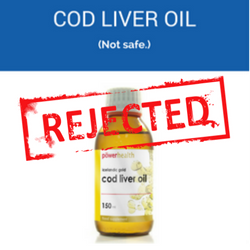
VERDICT on Cod Liver Oil
Not safe.
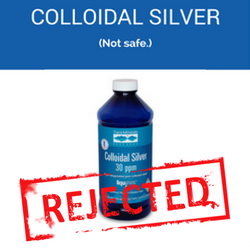
VERDICT on Colloidal Silver
Not recommended; not safe.
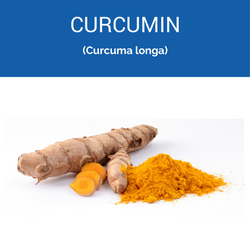
VERDICT on Curcumin
Redundant as a supplement if taking Apocaps CX; bioavailability issues.
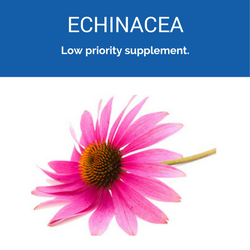
VERDICT on Echinacea
Low priority supplement.
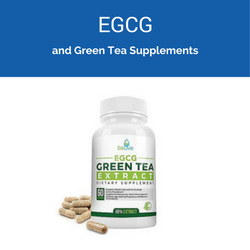
VERDICT on EGCG
Low priority supplement; may not be safe in all dogs.
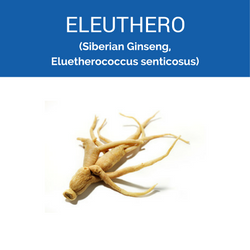
VERDICT on Eleuthero
Low priority supplement.
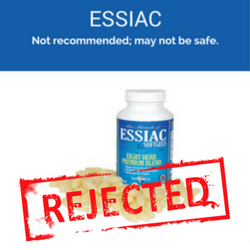
VERDICT on Essiac
Not recommended; may not be safe.
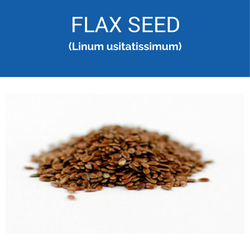
VERDICT on Flax Seed
Low priority supplement; impractical doses.
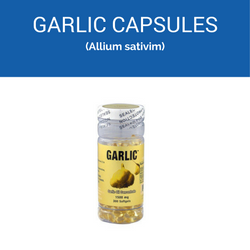
VERDICT on Garlic Capsules
May be ineffective in capsule form; instead use natural food as outlined in Dog Cancer Diet. (Note: Although it does have antioxidant effects, its anti-cancer effects are more important. I recommend using garlic even if you are also using Apocaps CX, pro-oxidant chemotherapy, or radiation treatments, under veterinary supervision.)
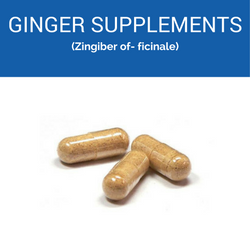
VERDICT on Ginger Supplements
Redundant as a supplement if taking Apocaps CX; use natural food as outlined in Dog Cancer Diet. (Note: Although it does have antioxidant effects, ginger’s anti-cancer and anti-nausea effects are more important. I recommend using ginger even if you are also using Apocaps CX, pro-oxidant chemotherapy, or radiation treatments.)
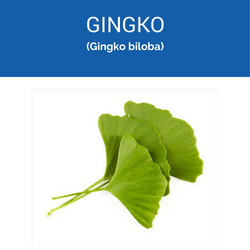
VERDICT on Gingko
Very low priority supplement.
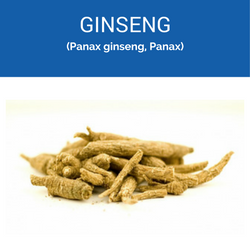
VERDICT on Ginseng
Low priority supplement.
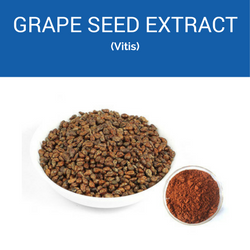
VERDICT on Grape Seed Extract
Low priority supplement; may not be safe for dogs.
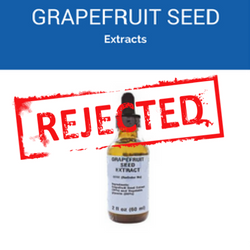
VERDICT on Grapefruit Seed
Not recommended; unsafe interactions are possible.
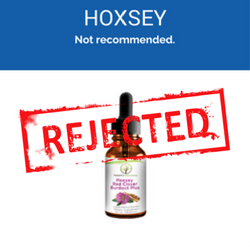
VERDICT on Hoxsey
Not recommended.
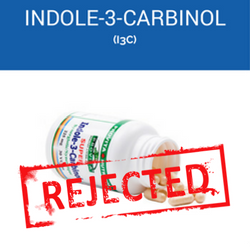
VERDICT on Indole-3-Carbinol
May not be safe; use natural food sources as outlined in dog cancer diet.
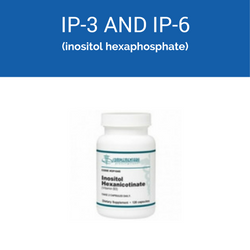
VERDICT on IP-3 and IP-6
Antioxidant that may interfere with more important therapeutics.
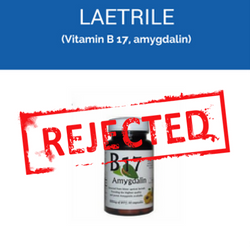
VERDICT on Amygdalin
Not recommended; safety issues.
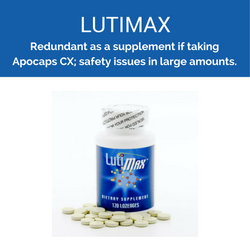
Lutimax I used to recommend Lutimax because it is one of the only supplements featuring luteolin, which has strong anti-cancer effects in the body (discussed in Chapter 12). Unfortunately, it also contains xylitol, which has been shown to cause liver injury and hypoglycemia in dogs when given in large amounts. I used to recommend Lutimax because of its main ingredient, but the possible xylitol issue remained. Given the large number of guardians using Lutimax according to the Full Spectrum plan, I was concerned that a dog with low-dose xylitol sensitivity might show up. Safety is critical, so I included luteolin as a main ingredient in Apocaps CX.Taking Lutimax at the same time as Apocaps CX is redundant.
VERDICT on Lutimax
Redundant as a supplement if taking Apocaps CX; safety issues in large amounts.
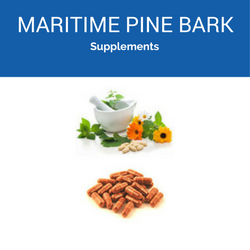
Maritime Pine Bark Supplements The anti-inflammatory effects of Maritime Pine Bark are well documented, but evidence for its direct anti-cancer effects is flimsy when compared to other supplements I recommend. Its antioxidant benefits do not outweigh its interfering effects on Apocaps CX and the pro-oxidant therapies chemotherapy and radiation.
VERDICT on Maritime Pine Bark
Low priority supplement; antioxidant which may interfere with more important therapeutics.
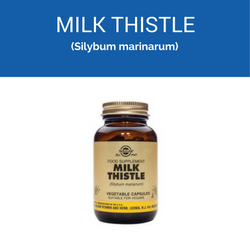
Milk Thistle (Silybum marinarum) In addition to other beneficial effects, constituents in milk thistle have demonstrated strong anti-cancer effects. However, the active compounds with anti-cancer properties (silymarin A and B and silybinin), are not easily absorbed by the body. To address this for dogs, I included silymarin and silybinin in Apocaps CX, and addressed the bioavailability issues with these ingredients. Using a separate milk thistle supplement would be redundant and much less effective due to the bioavailability problems when taken by mouth.
VERDICT on Milk Thistle
Redundant as a supplement if taking Apocaps CX; bioavailability issues.
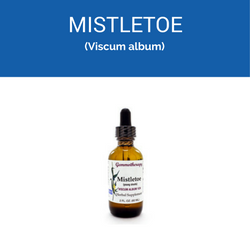
Mistletoe (Viscum album) Mistletoe may increase the life quality of cancer patients, but evidence for its direct anti-cancer benefits is flimsy. Its antioxidant benefits do not outweigh its interfering effects on Apocaps CX, pro-oxidant chemotherapy and radiation.
VERDICT on Mistletoe
Low priority supplement; antioxidant that may interfere with more important therapeutics.
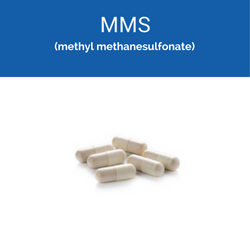
MMS (methyl methanesulfonate) I am definitely interested in this relatively new substance, which clearly has a biologically active effect. However, systematic safety studies are lacking, and there is some evidence that it may be carcinogenic. I’m not comfortable recommending MMS at this time, but I may recommend it in the future if its safety is established.
VERDICT on MMS
May recommend in the future; safety not established.
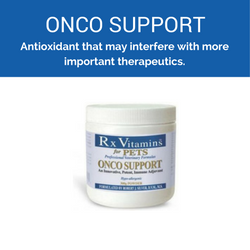
Onco Support The antioxidant effects of Onco Support don’t outweigh its interfering effects with Apocaps CX, prooxidant chemotherapy, and radiation.
VERDICT on Onco Support
Antioxidant that may interfere with more important therapeutics.
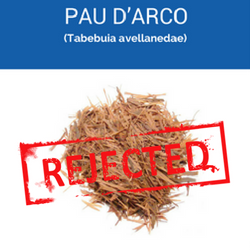
Pau d’arco (Tabebuia avellanedae) Pau d’arco is a South American tree reputed to be helpful for a variety of conditions. However, the tree itself is becoming scarcer every year, and imitation products are starting to hit the market. Pau d’arco contains hydroxyquinone, a known carcinogen, and, like Cat’s Claw, there is no standardization of the supplement. The batch variability and possibility of unsafe or synthetic ingredients makes me uncomfortable with recommending this supplement.
VERDICT on Pau D'Arco
Not recommended; batch variability; may not be safe.
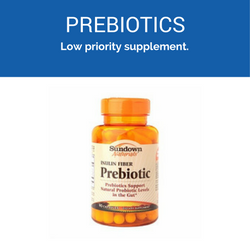
Prebiotics Prebiotics stimulate the growth and activity of the healthy bacteria in the digestive system. While I recommend them in general, because they can be useful for digestive upset and general health, they do not have direct anti-cancer benefits, so I consider them a low-priority supplement. Please see the probiotics discussion for more information.
VERDICT on Prebiotics
Low priority supplement.
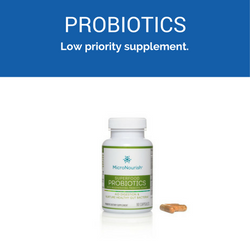
Probiotics Probiotics are live bacteria taken by mouth to promote a healthy digestive system. In general, I recommend using probiotics because they can be useful in managing diarrhea and in some cases involving allergies or inflammatory gastrointestinal diseases. They also have some nutritional benefit. However, probiotics lack specific anti-cancer actions in the body. Their lack of critical support for dogs with cancer makes them a low-priority supplement.
VERDICT on Probiotics
Low priority supplement.
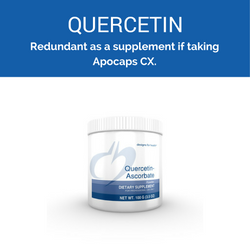
Quercetin Quercetin has good evidence for anti-cancer effects, but when taken by mouth has low absorption in the body. I like quercetin enough to include it in Apocaps CX, where its bioavailability issues are addressed. For this reason, taking a separate supplement is redundant.
VERDICT on Quercetin
Redundant as a supplement if taking Apocaps CX.
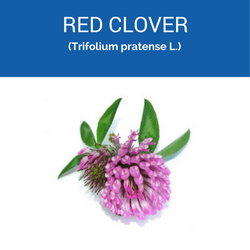
Red Clover (Trifolium pratense L.) Red clover may have some use in bone tumor cases, because it may help with maintaining the bone’s integrity. Otherwise, its overall anti-cancer evidence is very flimsy. It has antioxidant effects, but they do not outweigh its interfering effects on Apocaps CX and the pro-oxidant therapies chemotherapy and radiation.
VERDICT on Red Clover
Very low priority supplement.
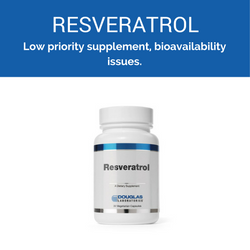
Resveratrol Resveratrol has good anti-cancer effects in vitro, but the bioavailability of the anti-cancer compounds in vivo is low. It has some application for cancers in the lining of the digestive tract, (where the substance can contact tumors directly), but otherwise I do not recommend it because its antioxidant effects in even low doses may interfere with treatments like Apocaps CX, pro-oxidant chemotherapy and radiation.
VERDICT on Resveratrol
Low priority supplement, bioavailability issues.
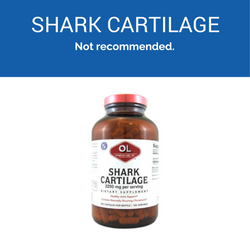
Shark Cartilage Shark cartilage has some isolated evidence for preventing angiogenesis, but the data is not strong. In addition to this, I am personally concerned because the harvesting of shark cartilage is a brutal process and may be threatening shark populations. For all of these reasons, I do not recommend shark cartilage.
VERDICT on Shark Cartilage
Not recommended.
*All products featured were chosen at random and comments are not meant to be a direct comment on the products featured specifically but as a visual sample of the overall category.*


